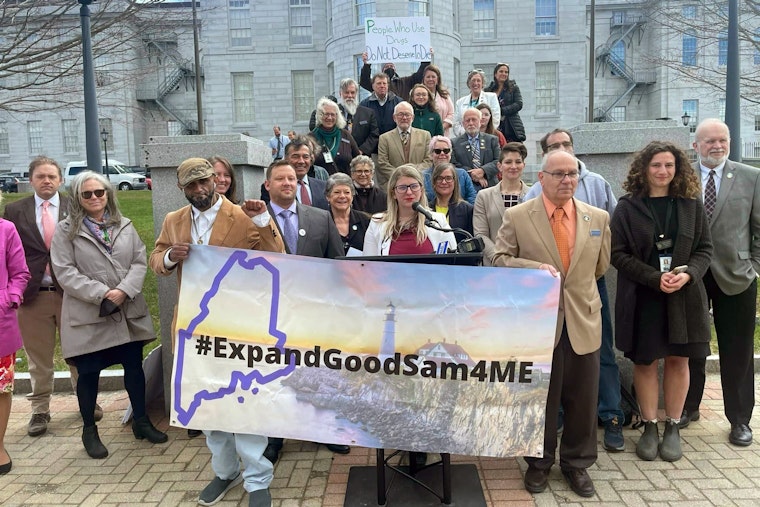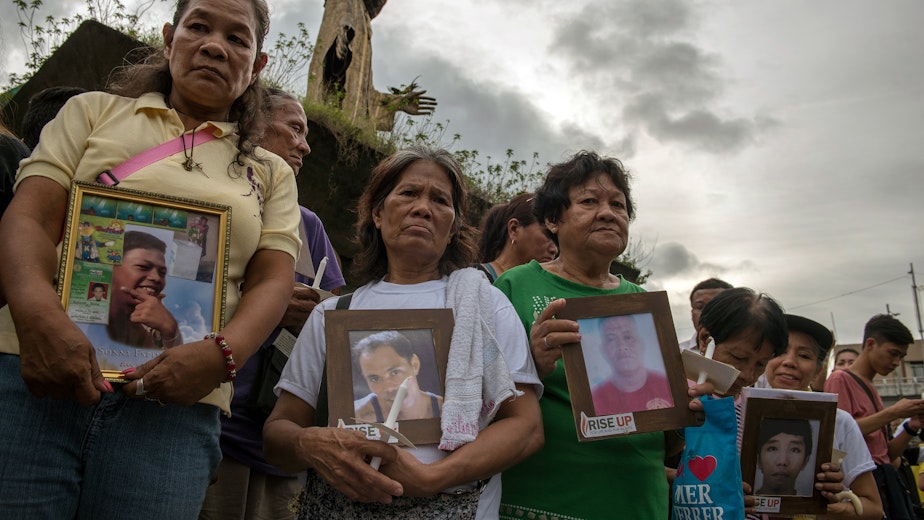Every Overdose Death Is a Policy Failure
By Courtney Gary-Allen

In the U.S. state of Maine, where I live and organize, we’ve seen a 35 percent drop in overdose deaths since the peak in 2023—exceeding the national average of 29 percent. Behind every one of these statistics is someone who is loved: a friend, a sibling, a parent, a child. These are people who matter deeply and whose lives were saved because someone fought for them to have the public policies, tools, and support they deserve.
This reduction in overdose deaths is not a coincidence. It’s the direct result of years—decades—of organizing by people with living and lived experiences of using drugs from around the world. Every policy win is part of a much larger strategy rooted in the radical idea that our lives are worth saving.
Leading the Way for Drug Policy Reform in the U.S.
At the Maine Recovery Action Project, known as ME-RAP, our work is guided by the expertise of people who use drugs and those in recovery. We ask what they need to survive and thrive—and then we fight to get it. If we continue to follow their lead, I know we can save even more lives.
In 2022, we helped pass the nation’s most comprehensive Good Samaritan Law, which protects anyone experiencing or witnessing an overdose from arrest for most nonviolent crimes, including all drug charges. This law means that no one in Maine has to choose between saving a life and preserving their freedom. We’ve heard directly from people who say this law gave them the courage to call 911. And we’re not done. We stand ready each time to defeat any effort to roll back these hard-won protections.
Additionally, in 2023, young people in our network organized to pass legislation requiring Maine high schools to train students to use naloxone, the opioid overdose antidote. This simple act not only saves lives but normalizes the presence of naloxone in our communities. Since 2019, more than 276,000 doses have been distributed across Maine to the public, by teachers, parents, neighbors, and most importantly, people who use drugs—people who may be the first to respond in a crisis.
We’re also making sure that when money flows—whether from opioid settlements or legalized cannabis revenues—it reaches the programs that make a difference. Last year, we successfully advocated for $2 million in cannabis sales tax revenue to go to recovery community centers, like ours, that are led by people in recovery and provide peer support, education, harm reduction programs, and community-based advocacy.
“These hard-won gains didn’t happen by chance. They’re the result of decades of tireless advocacy by people who use drugs—people who demanded dignity, health, and the right to live.”
Our network also helped create the Maine Recovery Council, which helps direct how half of Maine’s opioid settlement funds are spent. We fought to ensure that people with lived experience who have been affected by the opioid crisis have a seat at that table—and we’re thrilled that the council’s new director is someone who has walked that path. During the first two years the council has prioritized funding for syringe service programs, drug checking, treatment access, and culturally specific services in tribal communities.
Carrying the Momentum Forward
These hard-won gains didn’t happen by chance. They’re the result of decades of tireless advocacy by people who use drugs—people who demanded dignity, health, and the right to live and yet, who still sometimes died along the way. Our responsibility now is to carry that work forward.
Looking ahead, we’re continuing to push to open Overdose Prevention Centers (OPCs) and momentum from a near-win in 2023 and new study committee recommendations.
New York City, Rhode Island, and Vermont are already moving forward with OPCs. OPCs have been proven to reduce public drug use and the sharing and reusing of discarded syringes, connect people to treatment, and most importantly, save lives—not just inside the buildings but in surrounding neighborhoods.
Yes, overdose deaths are declining—but every life still lost is one too many. Each one reflects a failure of policy. The good news is, we can change policy. We know how to help people stay alive, heal, and thrive.
Get naloxone into the hands of people most likely to use it. Expand access to evidence-based treatments like methadone and buprenorphine. Support overdose prevention centers. Push for drug policy reforms that prioritize health rather than punishment. Demand that opioid settlement funds go to community-based programs that directly help those impacted. These strategies save lives.
Advocate. Organize. And then take action. Because every life saved is a win—and every life lost is a reminder that we still have work to do.
The Maine Recovery Action Project is a grantee of the Open Society Foundations.
Courtney Gary-Allen is the executive director of Maine Recovery Action Project.


